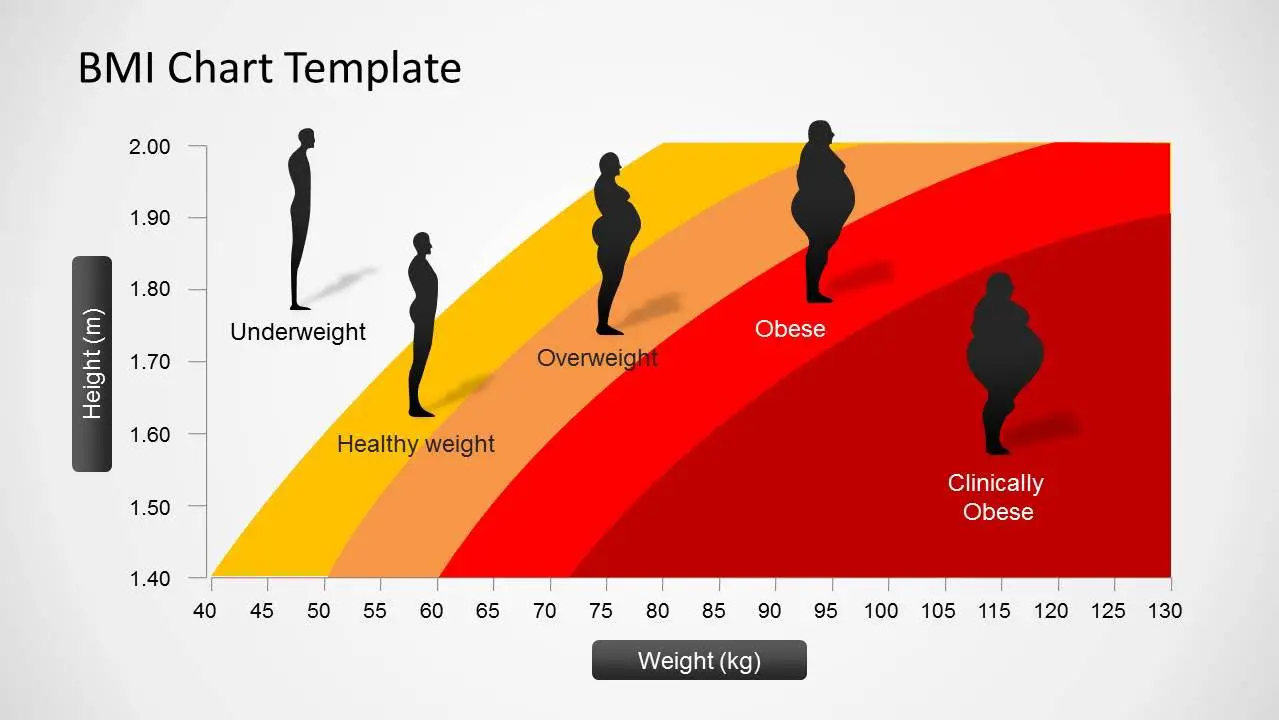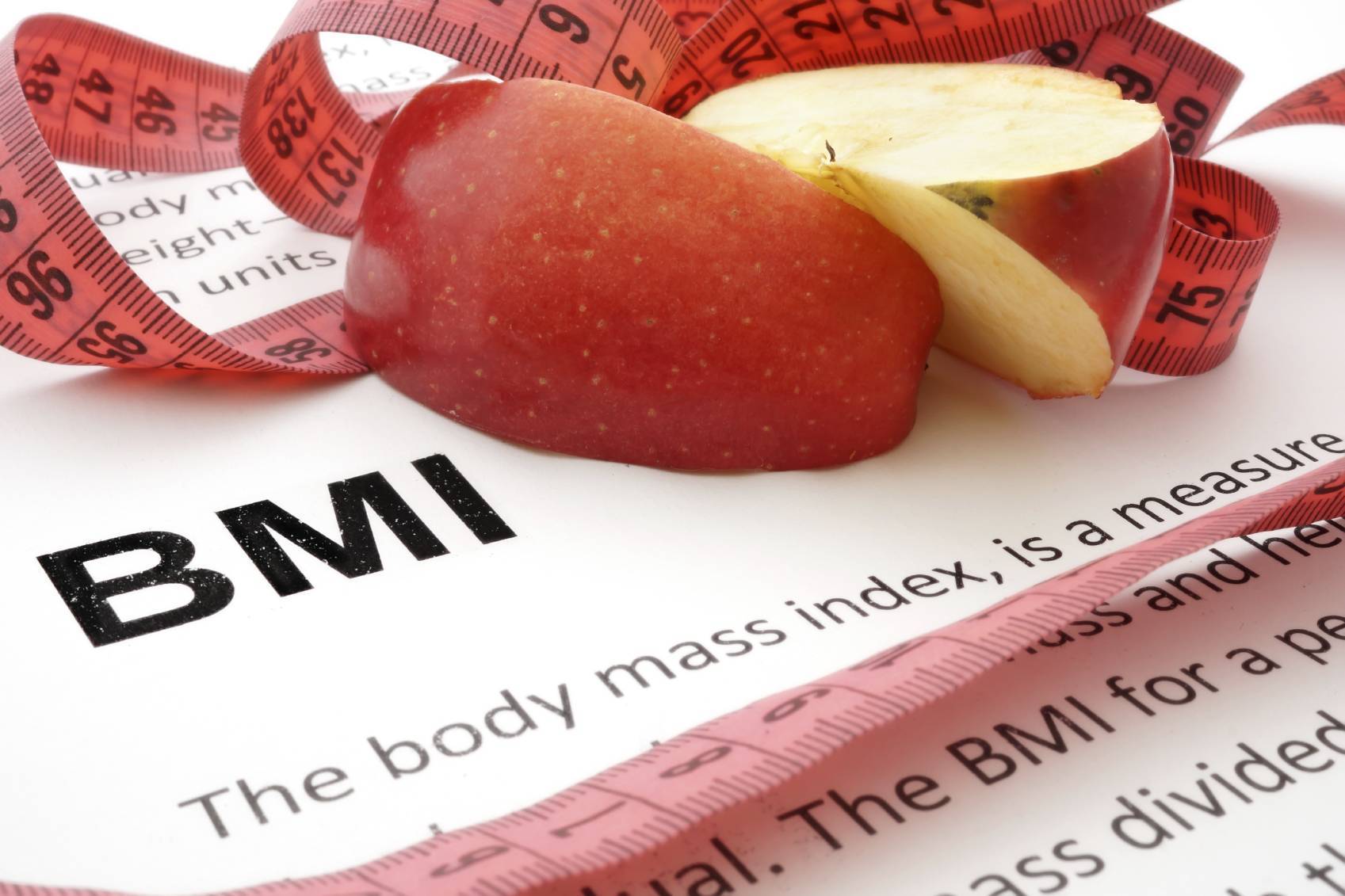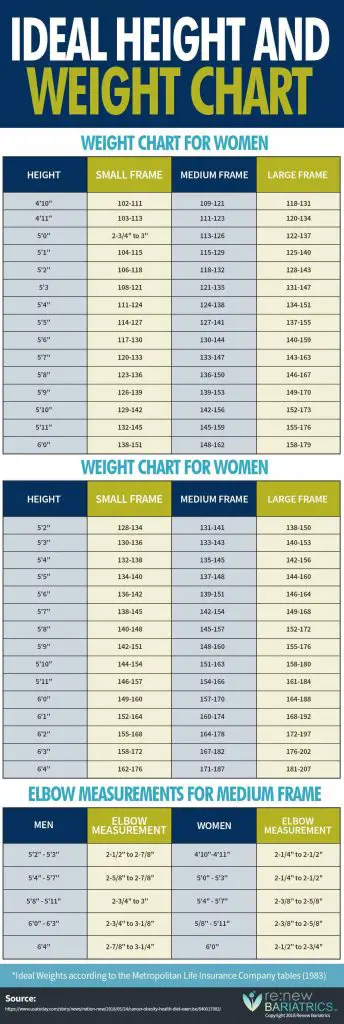Maintaining an appropriate weight is important for overall health and well-being. An appropriate weight is calculated by your body mass index (BMI), which takes into account your height, gender and age. To calculate your BMI, you can use an online tool or speak to your doctor. For adults, a BMI of 18.5 to 24.9 is considered healthy and appropriate. If your BMI is below 18.5, you are considered underweight, while a BMI of 25 or greater indicates you may be overweight.
Being overweight or underweight can lead to serious health issues, so it’s important to maintain an appropriate weight. A healthy lifestyle that includes a balanced diet and regular exercise is the best way to maintain an appropriate weight. Eating a variety of nutritious foods such as vegetables, fruits, and whole grains can help you maintain a healthy weight. Regular physical activity can also help you to stay at a healthy weight. Your doctor or a qualified health professional can provide personalized advice on how to achieve and maintain an appropriate weight. Making small changes in your lifestyle, such as eating a healthy diet and exercising regularly, can go a long way in helping you reach and maintain your ideal weight.
heathy weight range

Appropriate weight is important for overall health and wellbeing. Healthy weight range is determined by the Body Mass Index (BMI). BMI is calculated based on a person’s weight and height. A BMI of 18.5 to 24.9 is considered to be in a healthy weight range. Being underweight, overweight or obese can increase the risk of serious health problems.
It is important to maintain a healthy weight range to reduce the risk of health complications. Being in a healthy weight range can also increase energy levels and improve physical and mental health. Eating a balanced diet and exercising regularly is essential to achieving and maintaining a healthy weight.
What is a healthy weight range?
Generally, it is the weight range that provides the greatest health benefits for an individual. A healthy weight range is typically determined through body mass index (BMI). This is a measure of body fat that takes into account a person’s weight and height to determine a person’s overall health. A BMI that is below 18.5 is considered underweight, 18.5 to 24.9 is considered normal, 25.0 to 29.9 is considered overweight, and 30.0 or higher is considered obese. It is important to maintain a healthy weight range as it can help reduce the risk of developing chronic conditions such as diabetes, heart disease, stroke, and high blood pressure.
Additionally, it can help to maintain energy levels, encourage better sleep, and improve overall physical and mental health. To maintain a healthy weight range, it is important to focus on healthy eating habits, such as focusing on nutrient-dense whole foods and reducing the intake of processed and refined foods. Additionally, being physically active and getting enough sleep are also important components of a healthy lifestyle. Overall, a healthy weight range is an important part of maintaining overall health and wellbeing. By eating a balanced diet and being physically active, individuals can ensure that their weight is within a healthy range.
What is a healthy belly size?
A healthy belly size is one of the key indicators of an individual’s overall health and weight. It is important to maintain a proper waist-to-hip ratio in order to remain within a healthy range. Generally, a healthy waist size for a woman is 35 inches or less, while for a man it is 40 inches or less. A larger belly size can indicate an increased risk for serious health issues such as heart disease, stroke, type 2 diabetes, and certain cancers. Therefore, it is important to maintain a balanced diet and exercise regularly to ensure that your waist remains within a healthy range.
In addition to helping you reach and maintain a healthy body weight, a smaller belly size can also help you feel more confident, as carrying around extra weight can be uncomfortable and make you feel self-conscious. Therefore, if you are looking to achieve an appropriate weight, it is important to monitor your waist size and make sure that it is within a healthy range. By taking the time to practice healthy habits and steer clear of unhealthy ones, you can ensure that you remain within a healthy waist to hip ratio and a healthy body weight.
What is healthy weight for a woman?
Healthy weight for a woman is determined by her individual characteristics such as her height, frame size, and body composition. Generally, a woman’s weight should be proportionate to her height. Having a healthy weight is key to feeling and looking your best. Appropriate weight for a woman is a Body Mass Index (BMI) of 18.5 to 24.9. A woman with a BMI of 18.5 to 24.9 is considered to have a healthy weight.
To calculate your BMI, take your weight in kilograms and divide it by your height in meters squared. Maintaining an appropriate weight can help reduce risk of chronic diseases like heart disease and stroke, as well as certain types of cancer. Eating healthy and being active are important steps to maintaining a healthy weight. Eating a balanced diet consisting of fruits, vegetables, whole grains, and lean proteins can help you reach and maintain a healthy weight. Regular physical activity also plays an important role in managing weight. Aim for 30 minutes of physical activity most days of the week. To improve your overall health, try to incorporate moderate to vigorous physical activity into your weekly routine. Having a healthy weight is essential to living a healthy and active lifestyle. Eating nutritious foods and staying active are important components of maintaining a healthy weight. Taking the time to find out what your appropriate weight is and how to achieve it can help you look and feel your best.
How do I determine my healthy weight?
In order to determine your healthy weight, it is important to know your body mass index (BMI). BMI is a measure of body fat based on height and weight. Generally, a BMI between 18.5 and 25 is considered to be an appropriate weight for adults. If your BMI is below 18.5, you may be underweight and should try to gain a few pounds. If your BMI is above 25, you may need to lose some weight.
It’s also important to measure your waist circumference. Having a waist circumference above 40 inches in men and 35 inches in women increases your risk for health problems including heart disease and diabetes. In addition to measuring BMI and waist circumference, it’s also important to know your body composition. Body composition is a measure of the amount of body fat and lean muscle mass that you have. Knowing your body composition can help you decide whether you need to gain muscle or lose fat. Finally, it’s important to consider your lifestyle when determining your healthy weight. If you lead an active lifestyle, you may be able to maintain a higher BMI than someone who is inactive. However, it’s important to consider other health factors such as blood pressure, cholesterol, and blood sugar levels when making decisions about your weight. Your doctor or a nutritionist can help you determine your healthy weight and give you advice on how to reach it. With their help, you can achieve a healthy weight so you can live a happy and healthy life.
How to determine your healthy weight?
Maintaining a healthy weight is important for your overall health and well-being. Knowing your appropriate weight can help you make better decisions about your lifestyle. The best way to determine your healthy weight is by using the body mass index (BMI). It is a calculation based on your height and weight that gives you a general idea of your body composition. A BMI of 18.5-24.9 is considered healthy.
You can also use a waist to height ratio to determine if you are at a healthy weight. This ratio measures the circumference of your waist compared to your height. Having a ratio of 0.5 or lower is considered healthy. In addition to BMI and waist to height ratio, you can also look at your body fat percentage. A healthy percentage varies depending on gender, but it is typically between 18-25% for women and 8-15% for men. In conclusion, there are several ways to determine your healthy weight. Knowing your appropriate weight can help you make healthier choices and improve your overall health and well-being.
Is a BMI of 16 dangerous?
A BMI of 16 is generally considered to be an underweight BMI. It is dangerous because a person’s vital organs need a minimum amount of body fat to function properly. Furthermore, a low BMI can put a person at risk for medical complications such as anemia, osteoporosis and infertility. If a person has a BMI of 16, it is important that they speak to their doctor to ensure they are healthy and determine the best way to gain an appropriate weight. Eating a balanced diet and exercising regularly can help someone to increase their BMI while staying healthy.
It is important to remember that a BMI of 16 is dangerous and should not be taken lightly. A person’s BMI may indicate that they are underweight, but it does not provide the whole picture of what is going on in the body. Professional medical advice should be sought in order to gain an appropriate weight and ensure a person is healthy.
what s a good weight

Having an appropriate weight is important for overall health and wellbeing. It depends on a person’s age, gender, body frame size and muscle mass. Generally speaking, a healthy weight range for adults is within 18.5 to 24.9 BMI. A BMI of 25 to 29.9 is considered overweight, and a BMI of 30 or higher is considered obese. There are some factors to consider when determining a good weight goal.
It should reflect your current lifestyle and activity level, as well as any health conditions you may have that could affect your weight. It should also be realistic and achievable, and should be something you can commit to long-term. If you are unsure of your healthy weight range, it is best to talk to your doctor or a dietitian. They will be able to provide you with guidance and help you make a plan to reach your weight goals. They may also be able to refer you to a specialist if you need extra help. It is important to remember that a good weight is not a one-size-fits-all approach. Everyone’s body is different and what works for one person may not work for another. Eating a balanced diet and engaging in regular physical activity is an important part of maintaining a healthy weight. Ultimately, the key to finding an appropriate weight is to focus on your overall health. Aim for a weight that allows you to improve your wellbeing, rather than aiming for a number on the scale. With the proper guidance, you can find a good weight for your body and reach your health goals.
What is considered a good weight?
Having an “appropriate weight” is important for overall health and wellbeing. A good weight is one that is within the range that is considered healthy for an individual’s height. For adults, this range is typically determined by Body Mass Index (BMI). It is calculated based on an individual’s weight and height. A BMI between 18.5 and 24.9 is considered to be a healthy weight.
Being overweight or underweight can put an individual at risk for a number of health issues. Being overweight increases the risk of heart disease, stroke, Type 2 diabetes, and other illnesses. Being underweight can lead to nutrient deficiencies and other medical problems. It is important to remember that BMI is not a perfect measure of health. Some people with a healthy BMI may have a lot of body fat, while some people with a high BMI may have very little body fat. Therefore, it is important to talk to a doctor to determine a good weight for an individual’s age and body type. This can help an individual achieve and maintain a healthy weight for their body.
What are good ideas to maintain a good weight?
Maintaining a healthy weight is important for overall health and well-being. Here are some ideas to help you maintain a good weight:
- Eat a balanced diet, including plenty of fruits and vegetables. Choose whole grains, lean proteins and low-fat dairy products.
- Limit the amount of sugar, saturated fat and processed foods in your diet.
- Exercise regularly. Aim to get at least 30 minutes of exercise five days a week. This can include brisk walking, jogging, cycling, swimming or playing sports.
- Monitor your calorie intake. Make sure you’re eating enough for your activity level.
- Stay hydrated by drinking lots of water.
- Get adequate sleep. Aim for seven to nine hours of restful sleep each night. Following these tips can help you maintain a healthy weight and improve your overall health.
What weight is best for me?
When it comes to determining an appropriate weight for yourself, it is important to consider your body type and lifestyle. In general, having an ideal body weight within your age range is important for your overall health. It is helpful to consult a doctor or nutritionist to determine what range of weight is appropriate for you. They can assess your body type, age, and activity level to determine the best weight for you. You should also take into account your personal goals such as strength training, performance, or aesthetics.
Your weight should be adjusted to meet those goals while still staying within a healthy range. The key is to find a weight that you can maintain in the long run, as sudden weight loss or gain can be detrimental to your physical and mental health. You should also make sure your diet is balanced, and that you are eating plenty of nutritious foods. Finally, be sure to track your progress and adjust your goals as needed. Having the right weight for your body is an ongoing process, and you should stay committed to achieving it.
What should I do and eat to gain weight?
If you want to gain weight and reach an appropriate weight, there are a few things you must do and eat. First of all, it is important to make sure you eat enough calories. Eating a balanced diet with lots of protein, carbohydrates, and healthy fats will help you gain weight quickly. You should also focus on eating multiple meals throughout the day, rather than just three large meals. In addition to eating the right foods, exercising is also important.
Resistance training, such as weight lifting, can help you build muscle mass and increase your overall weight. Also, if you’re not getting enough calories from food, you can supplement your diet with a protein shake or other type of meal replacement. Finally, it is important to stay hydrated. Drinking plenty of water every day will help your body stay healthy and will ensure that you are gaining weight in a healthy way. All these things together will help you reach an appropriate weight.
What’s my ideal weight?
What is my ideal weight? When it comes to determining an appropriate weight for your body type, it’s important to look at your body mass index (BMI). An ideal BMI is between 18.5 and 24.9, meaning your weight should be relative to your height and frame size. Your age and gender can also be a factor in determining a healthy weight. Generally, men have higher muscle mass and typically have a higher ideal weight than women. Similarly, children and adolescents should look at their growth charts to determine their ideal weight.
Your activity level can also be a major determinant in your ideal weight. Those who engage in more active lifestyles may require higher weights than those who lead more sedentary lifestyles. For example, athletes may require a higher ideal weight than someone who works in an office setting. In general, maintaining an appropriate weight is important for overall health and well-being. Eating a balanced diet of nutritious food and exercising regularly is often the best way to achieve an ideal weight. If you’re unsure what your ideal weight should be, consulting a healthcare professional may be beneficial. What’s important to remember is that everyone is unique and different weights can be healthy for different body types. It’s important to find the weight that is healthy for you and your lifestyle.







